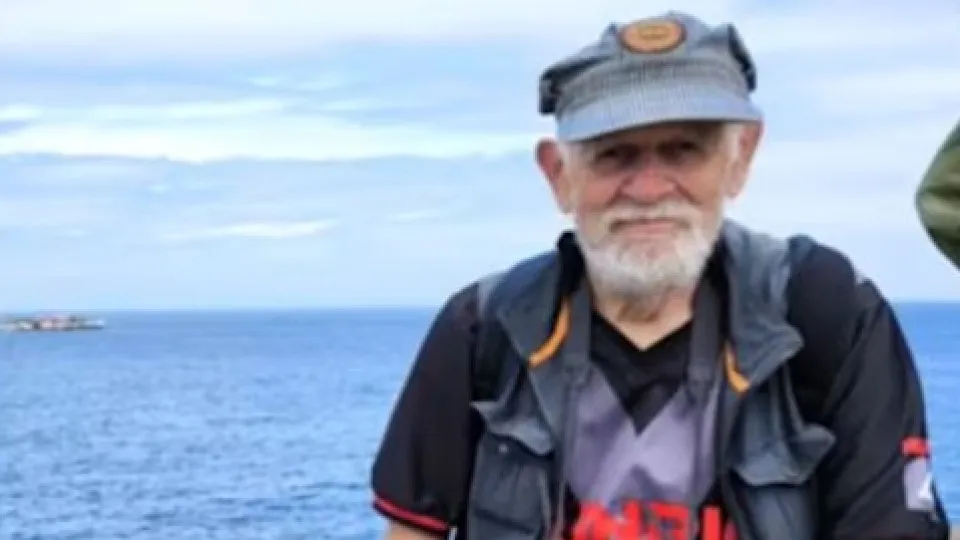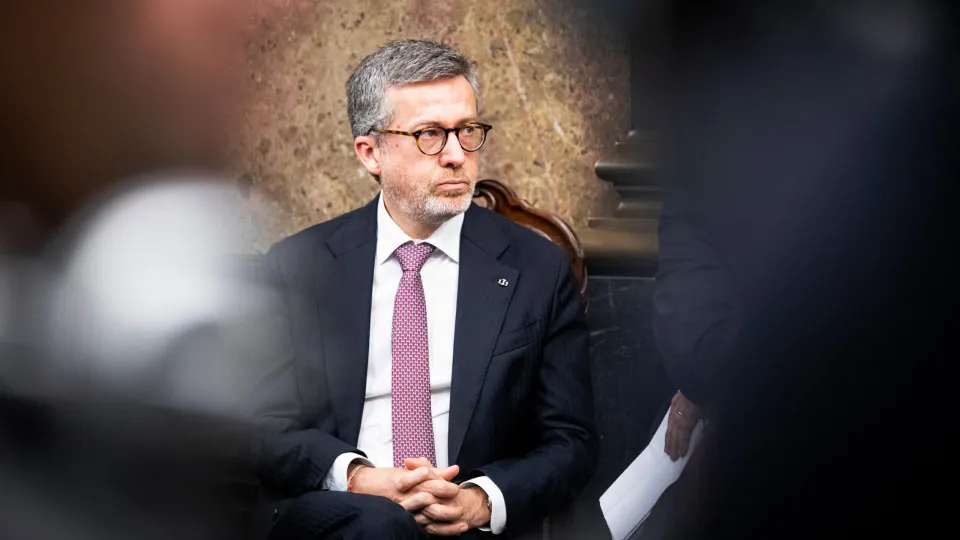
The biennial will take place for the first time in both capitals until October 26, featuring world premieres by artists from both countries. A highlight of the event is the opera directed by singer Dino D’Santiago, which will be presented nationally and internationally until 2027.
“It may seem that we are always starting from scratch, but it’s important to recognize we are not. We are genuinely restructuring, reinforcing, and expanding these close Iberian relationships that have been underrepresented in this manner,” stated the person contacted by Lusa agency about the 5th edition of the biennial.
‘Camino Irreal’ is the theme of the program curated by John Romão, a cultural programmer and director chosen as the artistic director of Évora European Capital of Culture this year.
In Spain, during the monarchy, ‘Camino Real’ referred to the paths connecting cities under royal protection: “Here [at the biennial], we are interested in ‘twisting’ the word real [to unreal], questioning the certainties of places controlled by certain power, embracing imagination and the resistance of unofficial discourses,” explained the curator to Lusa.
“We recognize the uncertainty in a noisy world, and look at the unreal as a safe and fertile place in a constructive sense. It’s important to reimagine a more balanced future. The space for artistic creation is always an unreal path, a refuge and resistance,” considered John Romão.
From September 10 to October 26, the 5th edition of BoCA will gather transdisciplinary projects crossing performing arts, visual arts, music, and cinema, while organizing debates and workshops in museums, theaters, art galleries, cultural centers, and heritage sites.
The opera ‘Adilson’, staged by Dino D’Santiago with a libretto by Rui Catalão, addresses the current struggle of thousands for citizenship and the right to be recognized in their home country.
John Romão also highlighted the absolute premieres, including an invitation to Adriana Progranó, winner of the EDP New Artists Award, to create her first public space installation at Galeria Quadrum in Lisbon, titled ‘Echoes of Whispers, Plimplim’. Also, ‘Pemba’, a large-scale installation by Angolan artist Kiluanji Kia Henda, focuses on migration flows and memory.
Originally, BoCA was presented biennially in two simultaneous cities—the capital and also Porto, Braga, Almada, and Faro—but the unprecedented expansion across borders to Madrid “marks a new phase for the biennial, developing its international dimension already seen in co-productions, yet never before involving a foreign city.”
“We are very interested in reinforcing inter-institutional relations and initiating unique collaborations between artists resident in Portugal and Spain, circulating these creations across the two cities for seven weeks during the biennial,” highlighted the organizer to Lusa, reiterating the event’s unprecedented institutional representation.
The curator of BoCA biennial assured that the participation of 20 Portuguese cultural entities and ten Spanish ones “marks the largest involvement in a cultural project between Portugal and Spain to date.”
The Prado Museum, Reina Sofia Museum, Thyssen-Bornemisza Museum, Casa Incendida, and La Abadia Theater are some of the cultural venues showcasing BoCA’s program in the Spanish capital.
“We view this relationship with Madrid as a beginning and wish to deepen it in the future, extending this network that is very representative of the artistic and creative sectors in both countries,” reiterated the programmer, inviting artists from various creative territories.
Examples include the project between Spanish playwright Alberto Cortês and painter João Gabriel, or playwrights Tiago Rodrigues and Patrícia Portela who create two short plays for the Prado National Museum.
“We aim to open discussions about how theatrical writing can dialogue with classic painting in museums, where dance has been the protagonist. We are interested in posing new challenges for spaces and artists,” noted the programmer.
Additionally, in the Spanish capital, the program includes Gabriel Chaile’s installation ‘Alcindo Monteiro’ in Esto es una plaza in the Lavapiés neighborhood, and ‘Belonging’, a film-concert by Raquel André, at Réplika Teatro.
John Romão mentioned that although he won’t continue as curator for the next biennial edition in 2027, he expressed hope for reinforcing the relationship with Madrid, which involved extensive work with much more to explore.
“We restored partnerships between the Portuguese Cinematheque and the Spanish Filmoteca, featuring a film cycle and a premiere of a new short film by João Pedro Rodrigues. We revived some artistic relationships that had been paused, such as choreographers Francisco Camacho and Helena Córdoba, together ten years ago at the Citemor Festival, now collaborating anew on body and aging issues,” he exemplified, adding two new names in Lisbon’s dance scene: Candela Capitán and Marcos Morau.
A highlight in BoCA’s 5th edition program is the performative vigil ‘O Julgamento de Pelicot’ by Swiss director Milo Rau, with actress Servane Dècle, premiered in Vienna, Austria, and presented in July at the Festival d’Avignon in France.
The “performative vigil” spanning four hours reconstructs the real case of sexual violence against Giselle Pelicot in France—a case that shocked the world—during which various invited speakers will read texts at the National Pantheon.
Besides these, Lisbon’s edition of the biennial includes venues like the Museum of Art, Architecture, and Technology, Culturgest, Estufa Fria, Teatro do Bairro Alto, and Carpintarias de São Lázaro.
This edition also features the exhibition ‘Dialeto’ by Felipe Romero Beltrán, split between the National Museum of Contemporary Art in Chiado and Carpintarias de São Lázaro, alongside a concert-performance ‘The Spirit Lamp’ by Chrystabell at A Voz do Operário, presenting instrumental compositions by David Lynch.
The film and performance ‘¿De qué casa eres?’ marks visual artist Ana Pérez-Quiroga’s first film, accompanied by a performance extending that relationship, to be shown at Cinema Fernando Lopes, as well as the performance cycle ‘Quero ver as minhas montanhas’, revisiting Joseph Beuys’ legacy through his own real and symbolic mountains.




